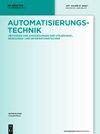Synthetic data generation for the continuous development and testing of autonomous construction machinery
IF 0.7
4区 计算机科学
Q4 AUTOMATION & CONTROL SYSTEMS
引用次数: 0
Abstract
Abstract The development and testing of autonomous systems require sufficient meaningful data. However, generating suitable scenario data is a challenging task. In particular, it raises the question of how to narrow down what kind of data should be considered meaningful. Autonomous systems are characterized by their ability to cope with uncertain situations, i.e. complex and unknown environmental conditions. Due to this openness, the definition of training and test scenarios cannot be easily specified. Not all relevant influences can be sufficiently specified with requirements in advance, especially for unknown scenarios and corner cases, and therefore the “right” data, balancing quality and efficiency, is hard to generate. This article discusses the challenges of automated generation of 3D scenario data. We present a training and testing loop that provides a way to generate synthetic camera and Lidar data using 3D simulated environments. Those can be automatically varied and modified to support a closed-loop system for deriving and generating datasets that can be used for continuous development and testing of autonomous systems.自动化工程机械持续开发和测试的综合数据生成
自主系统的开发和测试需要足够的有意义的数据。然而,生成合适的场景数据是一项具有挑战性的任务。特别是,它提出了一个问题,即如何缩小什么样的数据应该被认为是有意义的。自主系统的特点是能够应对不确定的情况,即复杂和未知的环境条件。由于这种开放性,训练和测试场景的定义不容易指定。并不是所有相关的影响都可以通过需求预先充分指定,特别是对于未知的场景和极端情况,因此很难生成平衡质量和效率的“正确”数据。本文讨论了自动生成3D场景数据的挑战。我们提出了一个训练和测试循环,提供了一种使用3D模拟环境生成合成相机和激光雷达数据的方法。这些可以自动变化和修改,以支持一个闭环系统,用于派生和生成可用于自治系统的持续开发和测试的数据集。
本文章由计算机程序翻译,如有差异,请以英文原文为准。
求助全文
约1分钟内获得全文
求助全文
来源期刊

At-Automatisierungstechnik
工程技术-自动化与控制系统
CiteScore
2.00
自引率
10.00%
发文量
99
审稿时长
6-12 weeks
期刊介绍:
Automatisierungstechnik (AUTO) publishes articles covering the entire range of automation technology: development and application of methods, the operating principles, characteristics, and applications of tools and the interrelationships between automation technology and societal developments. The journal includes a tutorial series on "Theory for Users," and a forum for the exchange of viewpoints concerning past, present, and future developments. Automatisierungstechnik is the official organ of GMA (The VDI/VDE Society for Measurement and Automatic Control) and NAMUR (The Process-Industry Interest Group for Automation Technology).
Topics
control engineering
digital measurement systems
cybernetics
robotics
process automation / process engineering
control design
modelling
information processing
man-machine interfaces
networked control systems
complexity management
machine learning
ambient assisted living
automated driving
bio-analysis technology
building automation
factory automation / smart factories
flexible manufacturing systems
functional safety
mechatronic systems.
 求助内容:
求助内容: 应助结果提醒方式:
应助结果提醒方式:


